Colombia and Japan play a separate game in the World Cup
Published on 06 April 2018
Japan is one of the main trading partners of Colombia. Both countries import and export products that the other country lacks or is less efficient to produce, and thus improve their economies and trade ties.
On the side of Colombian exports, Japan is the main or second destination for many of the most important products in its portfolio. Based on the election of the 10 main items for 2017, later grouped into categories (eg: carnations and other flowers, which groups various items), the statistics shown by the Veritrade system allow finding the most outstanding, summarized in the following table.
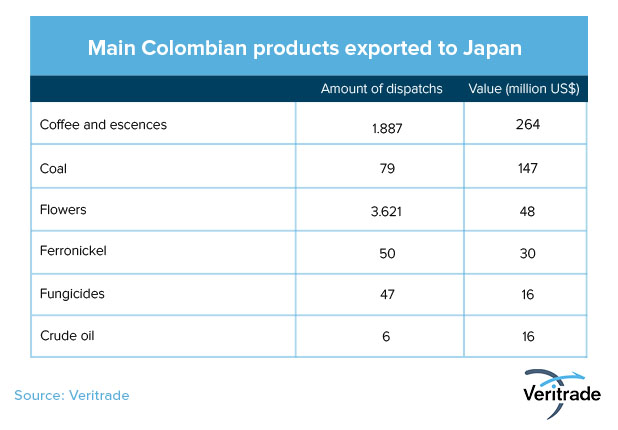
Except for the fungicides, the other products in the table are part of the list of emblematic products of Colombia, which shows the importance of Japan for the South American country's exports. However, fungicides are also a clear sign of the diversification of the portfolio, including products derived from petrochemical processes.
In terms of importance as a destination, Japan stands out for coffee, flowers and fungicides, as the following tables show. On the one hand, it is a destination with consumers with high purchasing power, as evidenced by the higher value per shipment, which shows higher quantities or prices. Additionally, the agriculture of products such as rice and wheat demands fungicides, produced by transnational companies that also redistribute to the rest of the world.
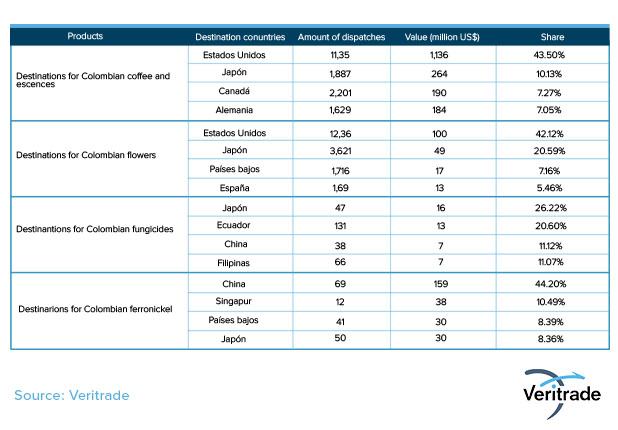
Por el lado de las importaciones, Colombia brings products of high complexity in assembly, as well as supplies for metalworking. Repeating the selection criteria applied for exports, that is, taking as a basis for the election the 10 main items for 2017, later grouped into categories (eg: motorized vehicles, which groups various items), of the statistics shown by the Veritrade system the following classification is obtained:
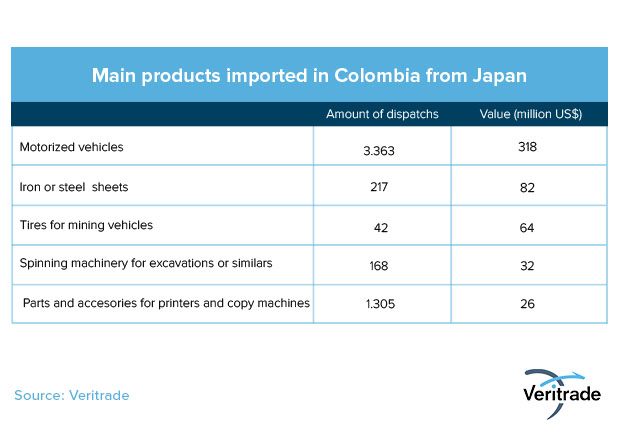
The automotive industry is the main commercial link from Japan to Colombia, due to the diversity and trajectory of the brands of vehicles of all kinds. As part of this segment, it is also an important source of construction machinery, as can be seen in the rotating machine category, and in a complementary way, with the import of tires for mining trucks. It should be added that a good part of the imports from Mexico correspond to Japanese and Korean brands, so that the origin can hide the origin of the capital.
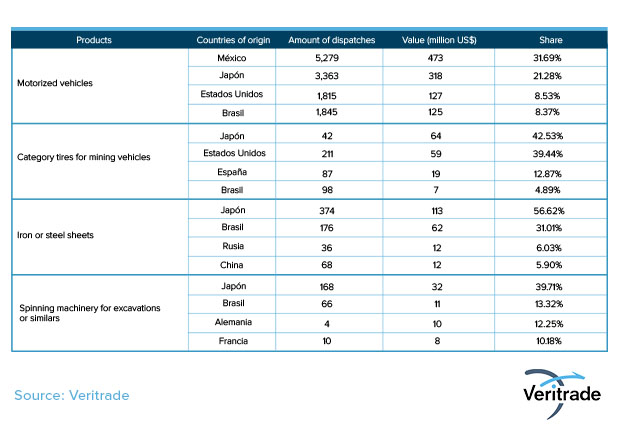
Finally, it is important to highlight Japan's position in the technology market. Faced with the increased competitiveness of China and Southeast Asian countries, the empire has remained as a developer of specialized parts, just like the United States. This can be seen in its position in the list of parts suppliers for printers and copiers.
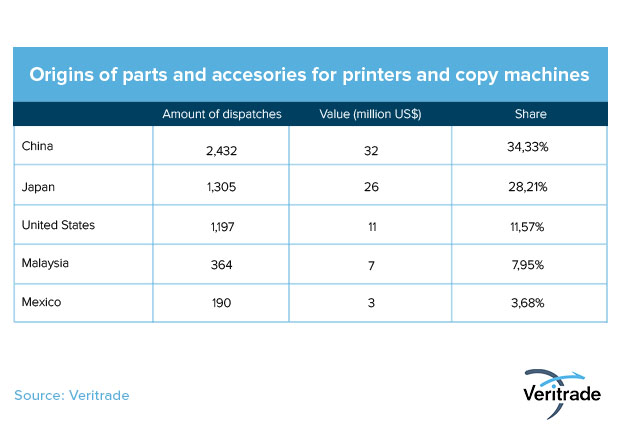
In general terms, both countries mutually benefit from the supply. Like most Latin American countries, Colombia takes advantage of the segments in which it is most competitive, mainly raw materials such as unroasted coffee beans and coal, required by the Japanese market, but unprofitable to produce in the Asian archipelago. Similarly, Latin American countries also do not have the conditions to develop heavy industry of great magnitude, and as already mentioned, even Japanese brands have derived operations to other countries to be more efficient.
In other words, the benefit between both countries is part of a whole global chain of commerce, in which specialization, quality and efficiency have the last word. With trade, we all benefit.